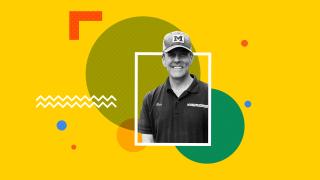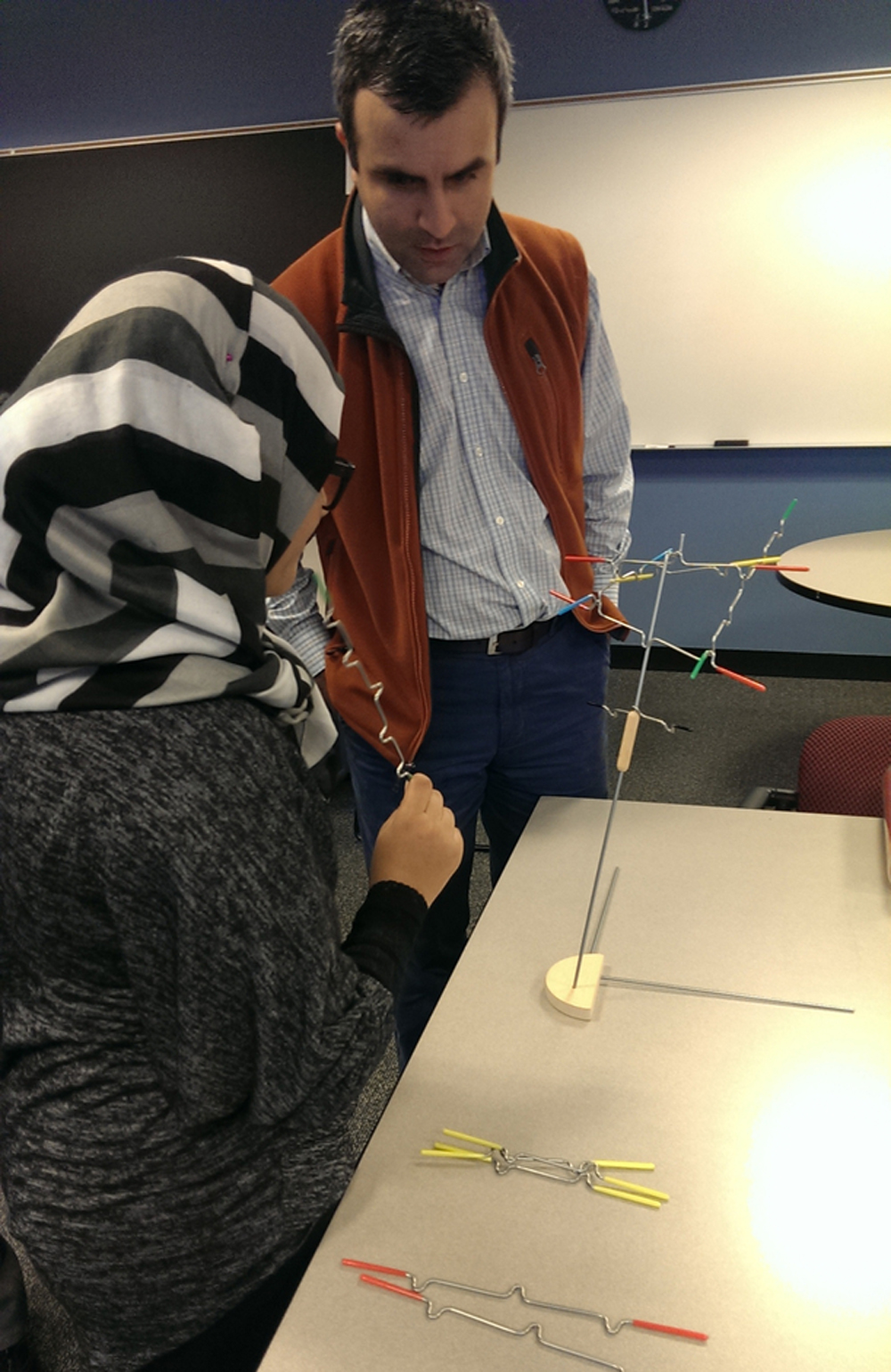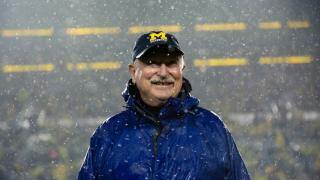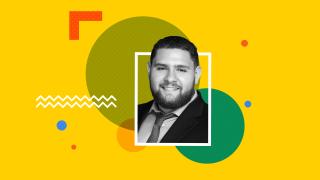The two-year grant was facilitated by Clarinda Barnett-Harrison, director of the Business Engagement Center (BEC), and Ann Serra, senior foundation and corporate giving officer, in partnership with the faculty leads Line van Nieuwstadt and Michael Lachance.
Aware that both programs wanted to expand, they looked for financial opportunities to fund the programs. STEMstart, an applied math program for recently graduated high school seniors, had a successful pilot run last year.
“Securing resources for programs like STEMstart and Math Circle not only provide capacity-building for important UM-Dearborn initiatives, it also fulfills the university’s metropolitan vision to support community building through K-12 STEM partnerships,” said Barnett-Harrison, BEC executive director.
Line van Nieuwstadt, engineering clinical professor, said STEMstart picks up at the age Math Circles leaves off: The outreach program is for students entering college who are interested in math and engineering, but whose college placement exam shows they aren’t ready for pre-calculus.
Van Nieuwstadt said CECS Dean Tony England noticed a trend among engineering students who had to take a remedial math course before pre-calculus: If they didn’t place into at least pre-calculus at the beginning of their college career, the likelihood of an engineering degree was slim.
“The goal for all of us on this campus is to prepare students to be successful. When you see that less than 5 percent of our students earn a degree if they do not place into Pre-Calc, you do something about it,” van Nieuwstadt said, noting that one reason may be because it puts them a year behind other students. “You need math preparedness for engineering—for many fields—and for everyday life. It’s important to teach that math is a tool, not something intimidating.”
During the STEMstart pilot last summer—which was organized by CECS’ Jennifer Makas, Lisa Remsing and the Hub for Teaching and Learning’s Tiffany Marra—eight admitted to-be freshmen who didn’t place in pre-calculus decided to take part in the free-to-attend program.
They did hands-on activities—like building Rube Goldberg machines—completed math exercises and met with peer mentors.
By the end of the six-week summer program, seven passed the placement test, and one even placed into calculus. All of those students currently are enrolled on campus and have monthly meetings with Academic Affairs advisers to check their progress.
“I am very thankful for this funding,” van Nieuwstadt said. “It’s going to allow us to open it up for 50 students to attend this summer, and it will fund next year.”
With the money, the Maize and Blue Math Circle is expanding too. They are still working out details, but will travel to schools in Detroit and Southfield starting in April to do their two-hour weekly sessions, which include interactive games, lessons, snacks and camaraderie.
Zeytuncu said it’s important to support and foster interest in the subject. He said kids into athletics have teammates and coaches, and he wants something like that for youth interested in academics too.
“We want to make sure that we can reach them and keep that interest going,” he said. “It’s a fun way to learn problem solving and meet friends who have the same interest as you. We have so many bright, talented kids out there. And we want to provide them with a support system. This money will help go into the community and do that.”






